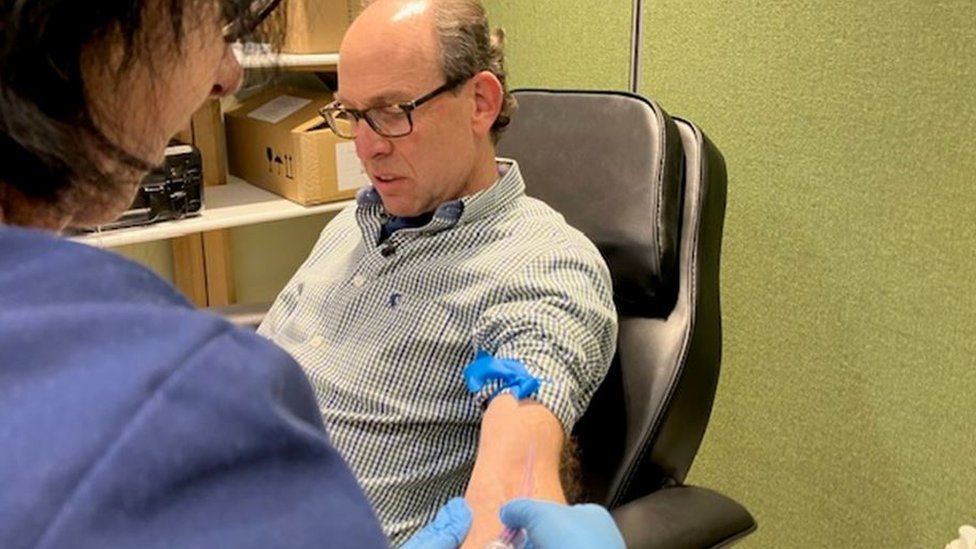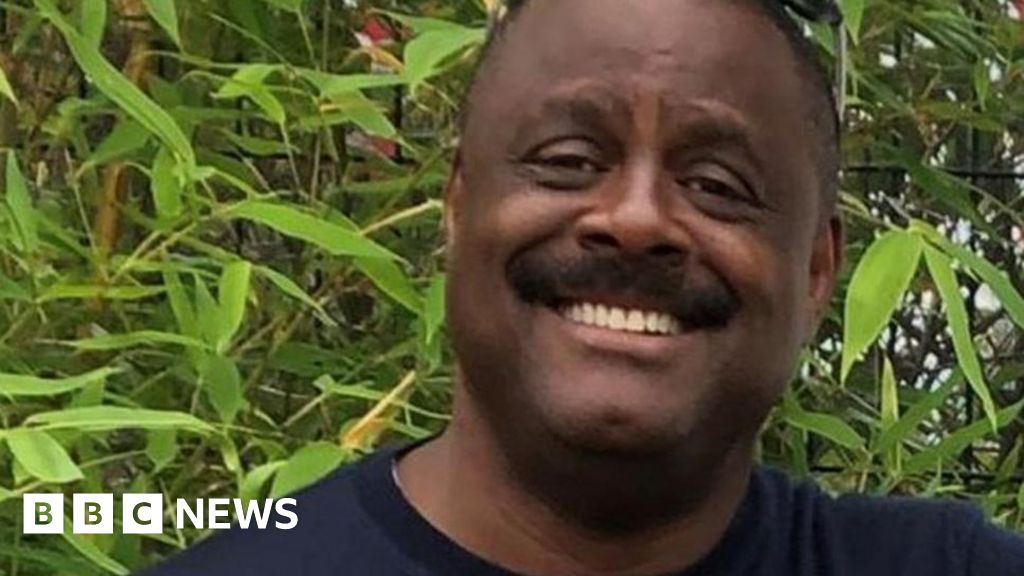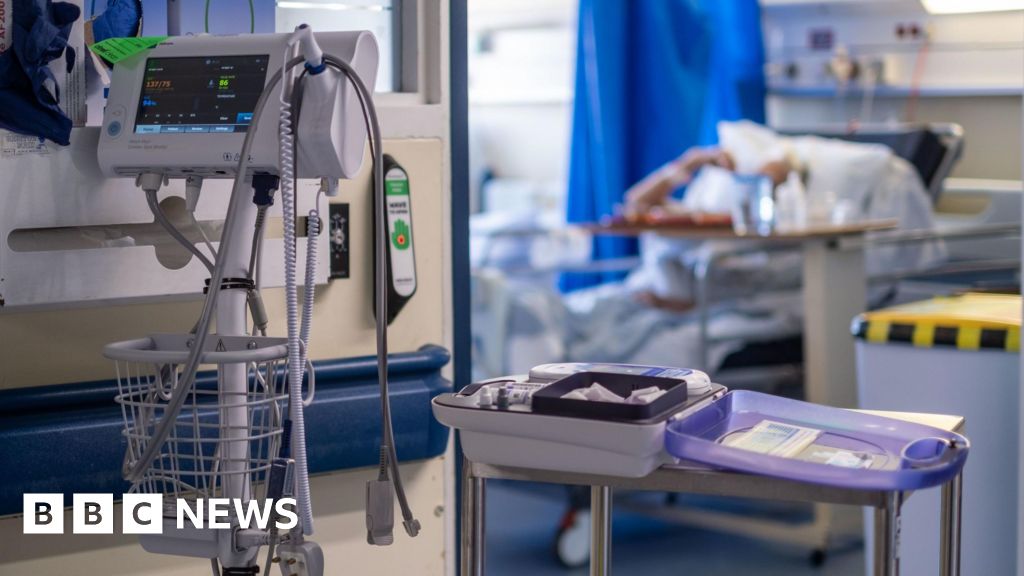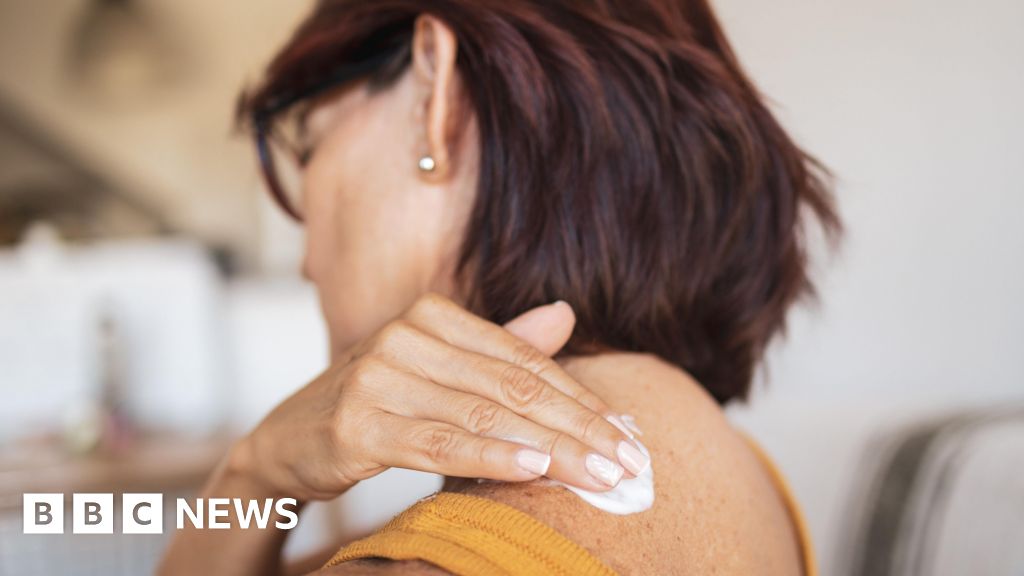ARTICLE AD BOX

Ronnie Helvey used Goodbody Clinic for a blood cancer test
By Matthew Hill
BBC West health correspondent
A business which charges £1,199 for a cancer blood test is potentially "preying on the worried well".
This is the opinion of oncologist Dr Paul Cornes who said there is no proven clinical benefit and test results could affect a patient's insurance.
Somerset-based Goodbody Clinic has set up 90 outlets nationwide offering this specific circulatory tumour test.
The clinic said its Trucheck test could help diagnose stage one and two cancers earlier.
While the test, which has been available since February, does identify cancer cells, the clinic also gives patients the impression they will benefit from early detection through paying for their test.
But Dr Cornes from the Bristol Oncology Centre claimed the science does not back this up and is potentially preying on the "worried well" - a term which describes a group of patients who are perceived as using health services inappropriately or disproportionately.
Dr Paul Cornes said comparative tests are needed
He sits on the European Society for Medical Oncology, which issued a press release in 2022 that said, before it could calculate the cost impact of introducing the test into routine clinical practice, more trials were needed.
"We need comparative trials across all types of cancer to find out if having an early detection test affects morbidity and mortality," Dr Cornes said.
"We also need to know how the tests benefit patients, and how to discuss the results with them," he added.
George Thomas, CEO of Goodbody Clinic, said: "I think the brilliance of this cancer test we are bringing to market now is it looks for stage one/stage two cancers, which are arguably a lot harder to treat, diagnose and cure at an earlier stage."
Ronnie Helvey, who was one of the first patients to have the test at the Goodbody Clinic in Bath, said: "Sadly on my father's side, he died aged 68 of cancer, a cousin of mine at 58 and my sister in law at 62, so I thought prevention is better than cure - it seems sensible to do."
After a two-week wait, the 64-year-old said he was given the "all clear".
He intends to take up Goodbody's recommendation to take a test each year.
George Thomas, CEO Goodbody Clinic, claimed the test can detect stage one and stage two cancers
Goodbody's booking form says the Trucheck test is "the most effective convenient diagnostic blood test available to distinguish up to 70 types of cancer tumours". It is the only company currently offering the test nationwide.
But Dr Cornes added: "The trouble with finding circulating tumour cells is what if the tumour is too small, that we can't see it. Those tumour cells might circulate days, weeks, months, years or even decades before that tumour could harm you.
"Is knowing you might get cancer when you are 120 any help to you now in your 50s?"
Dr Cornes examined a study Goodbody has on its booking form, from the International Journal of Cancer.
That study followed up more than 16,000 people in India given the Trucheck test, which is made by Datar Cancer Genetics, for a year.
Dr Cornes said of every 1,000 people tested, 44 in the trial will be positive with cancer cells circulating in their blood and within a year one will have a cancer diagnosis of a solid tumour.
'Wouldn't take myself'
"How does that affect your life insurance, your travel insurance, how does it make you feel?" he asked.
"So in terms of the value to a patient does it help you make a better decision? The answer is I think it doesn't.
"Do I think this is great science that has the potential to change screening - absolutely. But for the moment I think it's too early and I wouldn't take it myself," he said.
The Association of British Insurers initially said they could not comment as the test is new.
Goodbody offers appointments with a GP after a test has been booked to answer any questions people may have, and tells patients they can be referred to their own cancer specialists if cancer cells are found.
But customer Mr Helvey does not remember the company's GP telling him the chances of finding the actual tumour are extremely low.
He added: "He (the GP) just told me catching things early were the best form of prevention."
In response to the BBC's question about charging asymptomatic patients for a test that has "no clinically-proven benefit", Goodbody's George Thomas directed the BBC to the owner of Datar, which carried out the study.
Dr Vineet Datta, executive director of Datar Cancer Genetics, said: "There's currently, in our data, clearly a gap which doesn't demonstrate a population-based benefit at either financial value of health economics or in terms of overall survival."
Responding to the accusation of potentially preying on the worried well, Dr Datta said patients needed to be given unbiased, clear information about the pros and cons of having the test and that Datar is working on clearer guidelines for patients.
"Clearly more work will need to be done in terms of population-based data in terms of overall survival rates within the system, but we are creating pathways," he said.
"We are proactively reaching out to those clinicians and healthcare partners to make sure they have an informed test so there is unbiased information that's being passed onto them before they take a test."
Follow BBC West on Facebook, Twitter and Instagram. Send your story ideas to: bristol@bbc.co.uk

 2 years ago
69
2 years ago
69








 English (US) ·
English (US) ·